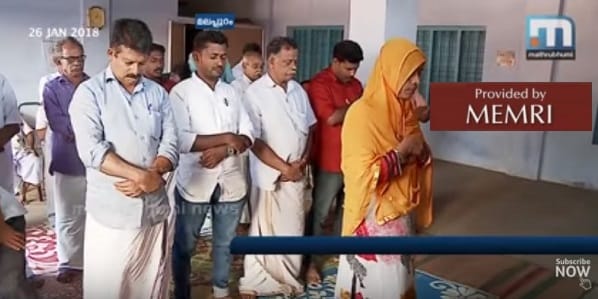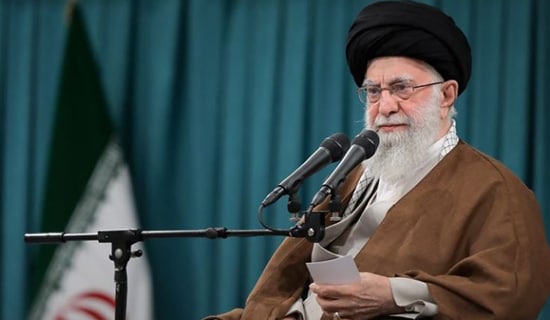
Jamida is the general secretary of an Islamic organization.
On January 26, 2018, Indian Muslim woman Jamida led the weekly Friday prayers at a mosque in the predominantly orthodox Muslim town of Malappuram in the southern Indian state of Kerala. While similar attempts by Muslim women have been made in Western countries to lead prayers at mosques usually controlled by men, Jamida made history by becoming perhaps the first Indian Muslim woman to lead the prayer in a mosque.
Prayers in Islam are led by an imam (leader) who is most often a male Islamic cleric. It is not a requirement that an Islamic cleric lead the prayer. Any person from among the worshippers present can lead an Islamic prayer. Jamida's decision to act as an imam is being seen as a revolutionary step against the patriarchal control of Islam. It is interesting that all the worshippers who prayed behind her were men, signifying a change in the mindset of Muslim men.
Identified by only one name, Jamida is the general secretary of Quran Sunnath Society at Wandoor in Malappuram. She led the prayers at the mosque at Cherukode, near Wandoor in Malappuram. The Quran Sunnath Society owes allegiance to the Islamic sect known as Ahle Hadith, which believes in the Koran as well as only in those hadiths (traditions of Prophet Muhammad) that concur with the Koranic teachings. The Quran Sunnath Society was established by Chekannur Moulavi, a Muslim scholar murdered by orthodox Islamic groups three decades ago.
According to a media report, Jamida said: "The Quran Sunnat Society has been involved in several movements including ones against the primitive, unfair practice of triple talaq [the practice of divorcing a wife by uttering "talaq" thrice consecutively]. I have faced death threats in the past for leading those campaigns and I am sure, this move of mine has upset the high and mighty. Maybe they will want to wipe me off the face of the earth, but I am prepared for it."[1]
Jamida told Mathrubhumi News: "The Koran gives equal importance to men and women. It is quite improper for the men to claim supremacy over women."[2] "We follow the Koran. It addresses the humankind as men and women, and does not discriminate between them. Both men and women have equal role in religion," Jamida said, adding: "We will continue the practice of woman leading the prayers when it meets our convenience."[3]
Given below are some images of Jamida leading the weekly Friday prayer:











